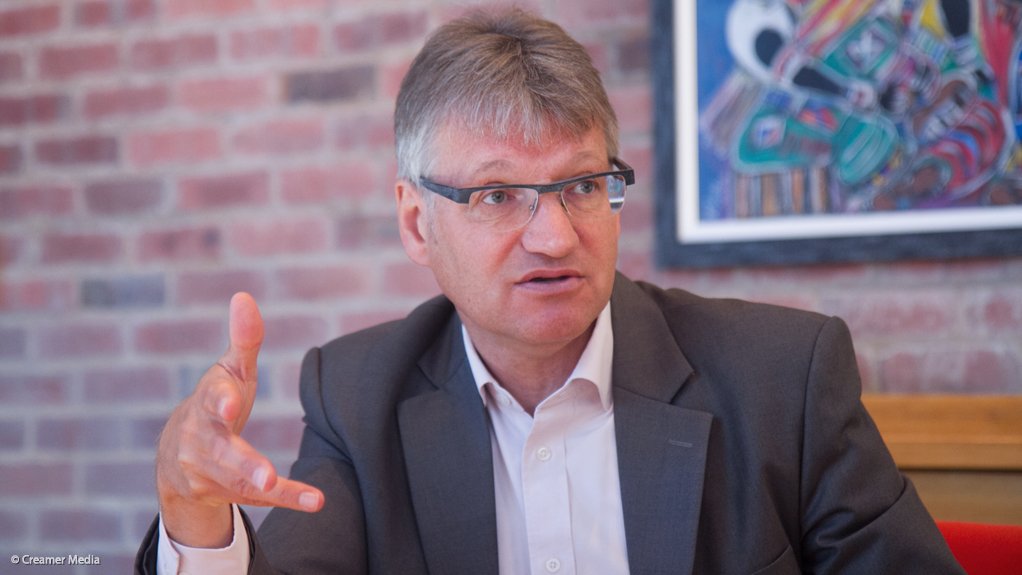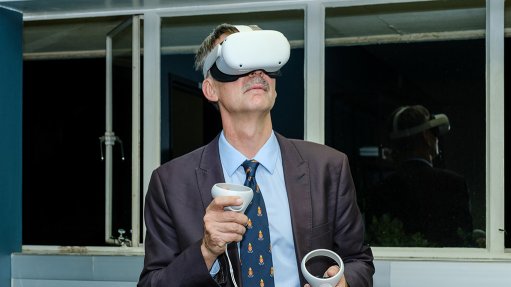‘Significant’ tech gap evident in SA rail industry, says Gibela
The technology gap between South Africa’s rail industry and the global industry is “very significant”, with “very few” existing black companies active in the local rail environment, says Gibela CEO Marc Granger.
Gibela has been appointed to deliver 600 new X'Ttrapolis Mega commuter trains to State-owned Metrorail operator, the Passenger Rail Agency of South Africa (PRASA), in a deal valued at R51-billion.
While the first 20 trains will be produced in Brazil, the remaining 580 will be built at an industrial park to be established on the East Rand, at Dunnottar, with the last train scheduled for delivery in 2027.
The project demands a high level of content from local suppliers, with a specific emphasis on procurement from black-owned companies.
Granger says the technology he refers to in the phrase “technology gap” includes product, material, complexity, as well as industrial efficiency and competitiveness.
It is about the industrial capability to deliver “the right product at the right quality and at the right time”.
The manufacturing rate required to make the number of trains the PRASA contract requires is “at the top of what the most experienced large original equipment manufacturer is able to do at its best [global] manufacturing unit”, Granger tells Engineering News Online.
“We need to put together thousands of parts coming from hundreds of suppliers. If one part is missing, production stops.
“We will buy massively, but we will buy from suppliers that will deliver at the performance we need from a quality point of view, and from a time delivery point of view.”
Granger regards the pricing negotiated by PRASA in the rolling stock deal as “very aggressive”, which means there is no room to pay a premium for locally made parts.
This means that South African component suppliers will have to ensure they are competitive on an “open, global market”.
Should these companies be able to do so, there is nothing to stop them from also supplying their goods into the global rail network, says Granger.
He adds that Gibela is “committed” to meet its targets, despite the technology gap that exists.
Gibela has designed a specialised programme to select the suppliers it requires, all in an effort to “be as transparent and realistic as possible”.
To date 1 300 people have participated in Gibela’s supplier days.
Granger says Gibela will place a large amount of contracts with tier-one suppliers, which will, in turn, procure their goods from tier-two and tier-three suppliers.
“Gibela will buy more systems and subsystems than individual parts.”
Gibela currently employs 100 people. This number is to grow to 500 in 2016.
PLANT CONSTRUCTION DELAYED
Construction on the Dunnottar plant was initially scheduled to start in February. However, it has is not yet commenced.
PRASA is to secure the land and hand over the site to Gibela.
“We are close to starting construction,” says Granger. “I can not say exactly when this will happen.”
He notes that Gibela and PRASA were aware that a ten-month period – from the signing of the contract to the start of construction – would “be a challenge”, owing to the complexity and number of parties involved in securing the site.
He says Gibela is not concerned about the delay.
It was reported earlier that Gibela is to deliver the first South African made train by June 2017.
Production of the first train in Brazil is happening as scheduled, says Granger.
The train is build by Gibela’s majority shareholder, Alstom Transport, at the Lapa manufacturing plant.
The South American site will produce the first 20 trains while the South African facility is being established, which requires “an intense skills and technology transfer”, says Granger.
The first car of the first Brazilian train has moved from manufacturing to testing, with PRASA executives able to “see and touch” the rolling stock in April.
The first train is scheduled to arrive in South Africa in November this year, after which it will be tested at a PRASA site for a six-month period.
It is scheduled to start service in June 2016.
PRASA was not immediately available for response.
Comments
Announcements
What's On
Subscribe to improve your user experience...
Option 1 (equivalent of R125 a month):
Receive a weekly copy of Creamer Media's Engineering News & Mining Weekly magazine
(print copy for those in South Africa and e-magazine for those outside of South Africa)
Receive daily email newsletters
Access to full search results
Access archive of magazine back copies
Access to Projects in Progress
Access to ONE Research Report of your choice in PDF format
Option 2 (equivalent of R375 a month):
All benefits from Option 1
PLUS
Access to Creamer Media's Research Channel Africa for ALL Research Reports, in PDF format, on various industrial and mining sectors
including Electricity; Water; Energy Transition; Hydrogen; Roads, Rail and Ports; Coal; Gold; Platinum; Battery Metals; etc.
Already a subscriber?
Forgotten your password?
Receive weekly copy of Creamer Media's Engineering News & Mining Weekly magazine (print copy for those in South Africa and e-magazine for those outside of South Africa)
➕
Recieve daily email newsletters
➕
Access to full search results
➕
Access archive of magazine back copies
➕
Access to Projects in Progress
➕
Access to ONE Research Report of your choice in PDF format
RESEARCH CHANNEL AFRICA
R4500 (equivalent of R375 a month)
SUBSCRIBEAll benefits from Option 1
➕
Access to Creamer Media's Research Channel Africa for ALL Research Reports on various industrial and mining sectors, in PDF format, including on:
Electricity
➕
Water
➕
Energy Transition
➕
Hydrogen
➕
Roads, Rail and Ports
➕
Coal
➕
Gold
➕
Platinum
➕
Battery Metals
➕
etc.
Receive all benefits from Option 1 or Option 2 delivered to numerous people at your company
➕
Multiple User names and Passwords for simultaneous log-ins
➕
Intranet integration access to all in your organisation





















